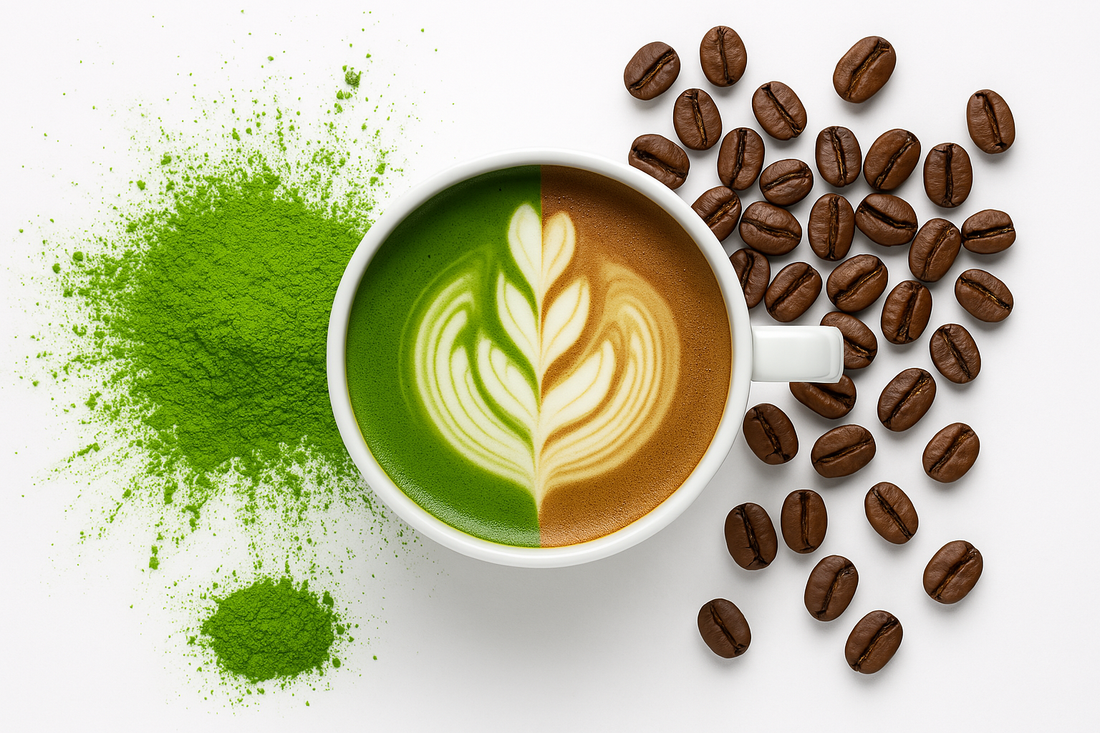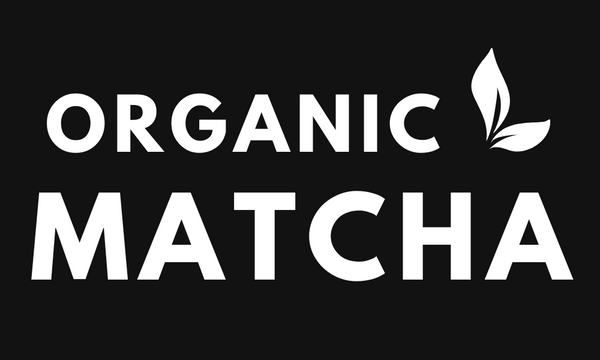
How does matcha's caffeine content compare to coffee?
Share
If you’re thinking about swapping your daily coffee for matcha, one of the first things you might wonder is: how do their caffeine levels compare?
Let’s start with the numbers. A standard cup of coffee contains anywhere from 90 to 120 milligrams of caffeine, depending on the brewing method and strength. Matcha, on the other hand, typically contains around 60 to 70 milligrams of caffeine per serving (about one teaspoon of powder).

So yes - coffee generally has more caffeine. But here’s where it gets interesting: matcha doesn’t feel like it has less caffeine. That’s because of a unique compound called L-theanine, which is naturally found in the shade-grown tea leaves used to make matcha. L-theanine works in harmony with caffeine to slow its absorption, creating a smoother, longer-lasting energy boost.
Instead of the quick spike and crash that coffee is known for, matcha offers a steady, focused alertness - often described as “calm energy.” It’s ideal if you want to feel awake without feeling wired.
This is why many people turn to matcha for work, study, or meditation. It helps enhance concentration, creativity, and clarity - without the anxiety or jitters that sometimes accompany a strong cup of coffee.
Another bonus? Because you’re consuming the entire tea leaf in powdered form, matcha offers more than just caffeine. It delivers antioxidants, chlorophyll, and amino acids that support overall wellness while energizing you.
In the end, it’s not just about the milligrams. It’s about how you feel. And with matcha, that feeling tends to be bright, clear, and beautifully balanced.
